PIAAC international reports
|
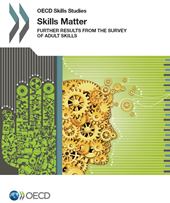 |
Skills Matter: Further Results from the Survey of Adult Skills
This volume reports results from the 24 countries and regions that participated in the first round of the survey in 2011-12 (first published in OECD Skills Outlook 2013: First Results from the Survey of Adult Skills) and from the nine additional countries that participated in the second round in 2014-15 (Chile, Greece, Indonesia [Jakarta], Israel, Lithuania, New Zealand, Singapore, Slovenia and Turkey). It describes adults’ proficiency in the three information-processing skills assessed, and examines how skills proficiency is related to labour market and social outcomes.
» Download the PDF
» OECD ilibrary
» Access the tables and charts (Webpackages)
|
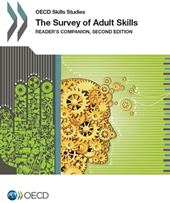 |
The Survey of Adult Skills: Reader’s Companion, Second Edition
The Survey of Adult Skills: Reader’s Companion, Second Edition, describes the design and methodology of the survey and its relationship to other international assessments of young students and adults. It is a companion volume to "Skills Matter: Further Results from the Survey of Adult Skills".
» Download the PDF
» OECD ilibrary
|
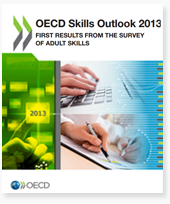 |
OECD Skills Outlook 2013: First Results from the Survey of Adult Skills
The Survey of Adult Skills, a product of the OECD Programme for the International Assessment of Adult Competencies (PIAAC), was designed to provide insights into the availability of some of key skills in society and how they are used at work and at home. The first survey of its kind, it directly measures proficiency in several information-processing skills – namely literacy, numeracy and problem solving in technology-rich environments. This first edition of the OECD Skills Outlook reports results from the countries and regions that participated in the first round of the Survey of Adult Skills.
Download the PDF
OECD iLibrary
Access the tables and charts (Webpackages)
|
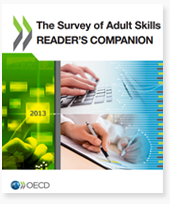 |
The Survey of Adult Skills - Reader's Companion
This reader’s companion for the Survey of Adult Skills (PIAAC) explains what the survey measures and the methodology behind the measurements, provides content of the background questionnaires, examines the relationship between this survey and other skills surveys, as well the issues of ‘key competencies" and measurements of human capital.
Download the PDF
OECD iLibrary
|
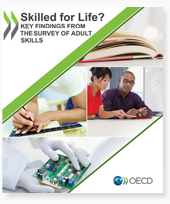 |
Skilled for Life? Key Findings from the Survey of Adult Skills
A 32-page brochure presenting the key findings from the Survey of Adult Skills (PIAAC).
Download the PDF
See the Slideshare
|
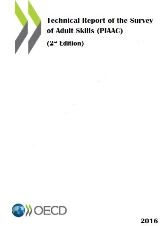 |
Technical Report of the Survey of Adult Skills (PIAAC) (Second Edition)
Download the full Report (NB: 1232 pages)
Table of Contents
Foreword
Section 1: Assessment and Instrument Design
Section 2: Platform Development
Section 3: Field Operations and Quality Control
Section 4: Sampling and Weighting
Section 5: Data Analysis and Data Products
Section 6: Appendices
|
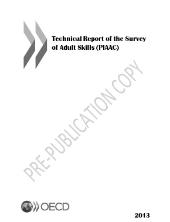 |
Technical Report of the Survey of Adult Skills (PIAAC) (2013)
Download the PDF (full Report - NB: Chapter 17 was updated on 1 Sept 2014)
Table of Contents
Foreword
Section 1: Assessment and Instrument Design
Section 2: Platform Development
Section 3: Field Operations and Quality Control
Section 4: Sampling and Weighting
Section 5: Data Analysis and Data Products
Section 6: Appendices
|
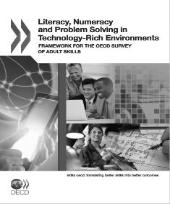
|
Literacy, Numeracy and Problem Solving in Technology-Rich Environments - Framework for the OECD Survey of Adult Skills
This report maps the development of the Programme, from determining what should be measured, to defining the meaning of PIAAC’s three core domains, “literacy”, “numeracy” and “problem solving in technology-rich environments”, to designing assessment tasks and determining how those tasks will be interpreted. It summarises the draft frameworks, developed by dedicated experts, for each of the assessment domains, and includes examples of the items and stimuli used to measure proficiency in the three domains. In essence, it provides an overview and a look at the underpinnings of PIAAC.
» Download the PDF
» OECD ilibrary
|









